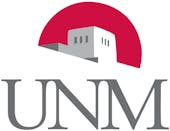As a scholar of racial capitalism, urban inequality and struggles for social justice, my research is motivated by three questions: 1) how is urban inequality reproduced? 2) how are inequalities normalized? and 3) how do marginalized communities and their allies contest these injustices?
I explore how places and practices construed as informal, illegal or lawless buttress networks of elite power and produce different kinds of urban spaces. Influenced by more than two decades of social movement activism, all my research begins from the premise that ordinary people have the capacity to understand and transform the conditions of their existence; indeed, communities are always engaged in life-making projects of survival and transformation. To this end, my research includes the knowledge and lived experiences of marginalized communities as part of building transformative social theory. Methodologically, I use feminist ethnography and archival analysis to understand how urban inequality is produced, maintained and contested, expanding the research gaze beyond the poor to investigate how the economic practices and value systems of elite actors reproduce inequality. Theoretically, I draw inspiration from feminist and Marxist geography, critical urban studies and anti-racist thought. Much of my research has been centered in Paraguay, drawing on relationships and expertise built through seventeen years of work there, with an additional research focus on Brazil. I also engage intellectual and activist projects in Albuquerque, New Mexico on themes of poverty, policing, anti-racism and abolition.
My book Outlaw Capital: Everyday Illegalities and the Making of Uneven Development will be published by the University of Georgia Press in fall 2023 in the Geographies of Justice and Social Transformation series. An ethnography of the largest contraband economy in the Americas running through Ciudad del Este, Paraguay, I show how transgressive economies and grey spaces are central to globalized capitalism. A key site on the China-Paraguay-Brazil trade route, Ciudad del Este moves billions of dollars’ worth of consumer goods—everything from cell phones to whiskey—providing cheap transit to Asian manufacturers and invisible subsidies to Brazilian consumers. A vibrant popular economy of Paraguayan street vendors and Brazilian “ant contrabandistas” capture some of the city’s profits, contesting the social distribution of wealth through an insurgent urban epistemology of use, need and care. Yet despite the city’s centrality, it is narrated as a backward, marginal and lawless place. Outlaw Capital contests these sensationalist stories, showing how uneven development and the Paraguayan state made Ciudad de Este as a grey space of profitable transgression. By studying the everyday illegalities of both elite traders and ordinary workers, Outlaw Capital shows how racialized narratives of economic legitimacy across scales—not legal compliance—sort whose activities count as formal and legal and whose are targeted for reform or expulsion. Ultimately, reforms criminalized the popular economy while legalizing, protecting and “whitening” elite illegalities.
Experience
-
–presentAssociate Professor of Community & Regional Planning, University of New Mexico
Education
-
2016University of California, Berkeley, City and Regional Planning
- Albuquerque, New Mexico, U.S.
- Website
- Article Feed
- Joined


